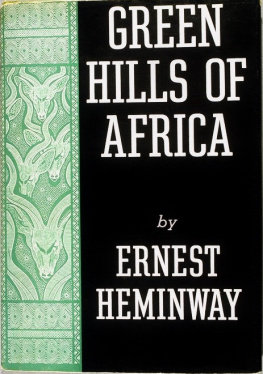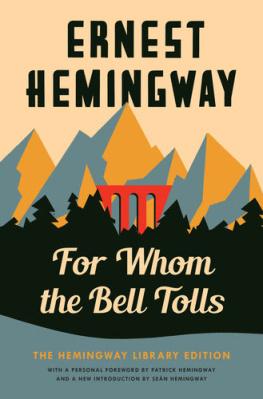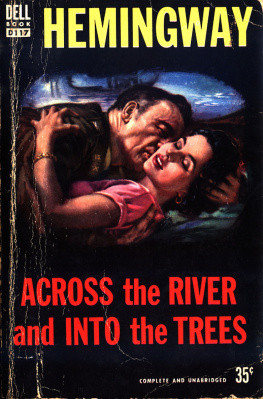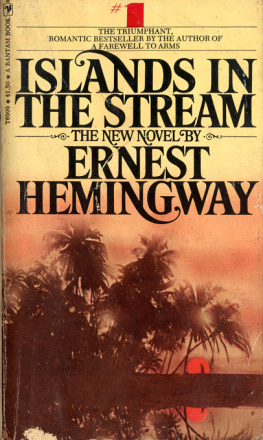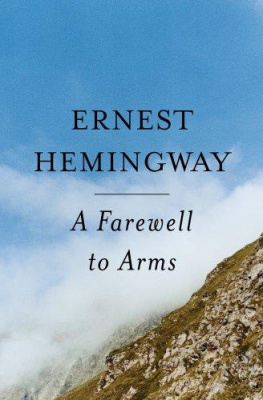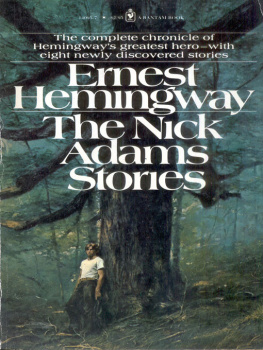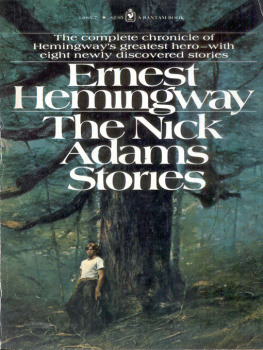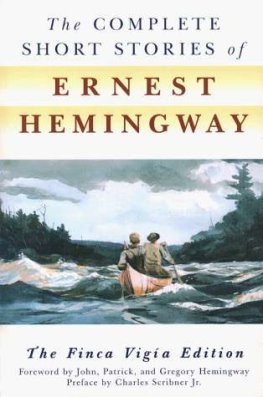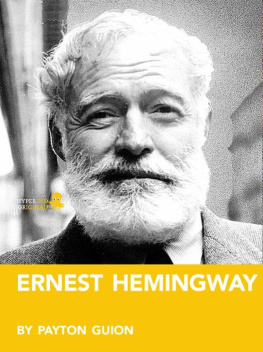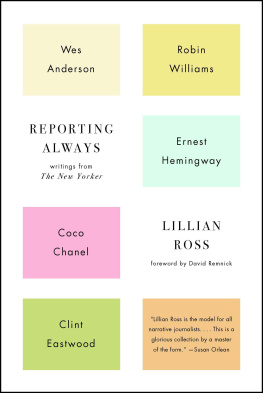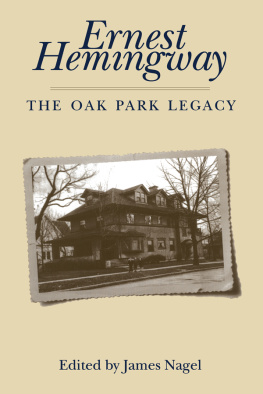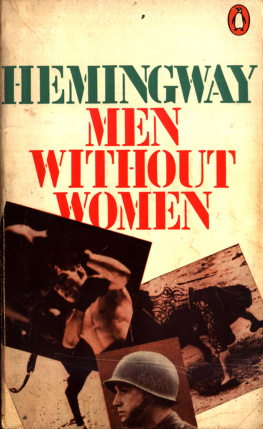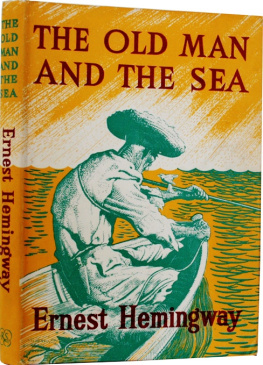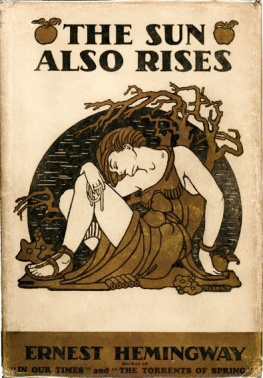Ernest Hemingway - Green Hills of Africa
Here you can read online Ernest Hemingway - Green Hills of Africa full text of the book (entire story) in english for free. Download pdf and epub, get meaning, cover and reviews about this ebook. genre: Detective and thriller. Description of the work, (preface) as well as reviews are available. Best literature library LitArk.com created for fans of good reading and offers a wide selection of genres:
Romance novel
Science fiction
Adventure
Detective
Science
History
Home and family
Prose
Art
Politics
Computer
Non-fiction
Religion
Business
Children
Humor
Choose a favorite category and find really read worthwhile books. Enjoy immersion in the world of imagination, feel the emotions of the characters or learn something new for yourself, make an fascinating discovery.
- Book:Green Hills of Africa
- Author:
- Genre:
- Rating:3 / 5
- Favourites:Add to favourites
- Your mark:
- 60
- 1
- 2
- 3
- 4
- 5
Green Hills of Africa: summary, description and annotation
We offer to read an annotation, description, summary or preface (depends on what the author of the book "Green Hills of Africa" wrote himself). If you haven't found the necessary information about the book — write in the comments, we will try to find it.
Green Hills of Africa — read online for free the complete book (whole text) full work
Below is the text of the book, divided by pages. System saving the place of the last page read, allows you to conveniently read the book "Green Hills of Africa" online for free, without having to search again every time where you left off. Put a bookmark, and you can go to the page where you finished reading at any time.
Font size:
Interval:
Bookmark:
Ernest Hemingway
Dear Mr. J. P.
Just tell them you are a fictionalcharacter and it is your bad luck to have a writer put such language in yourspeeches. We all know how prettily the best brought up people speak but there arealways those not quite out of the top drawer who have an 'orrid fear ofvulgarity. You will know, too, how to deal with anyone who calls you Pop.Remember you weren't written of as Pop . It was allthis fictional character. Anyway the book is for you and we miss you very much.
E. H.
Unlike many novels, none of thecharacters or incidents in this book is imaginary. Any one not findingsufficient love interest is at liberty, while reading it, to insert whateverlove interest he or she may have at the time. The writer has attempted to writean absolutely true book to see whether the shape of a country and the patternof a months action can, if truly presented, compete with a work of theimagination.
PURSUIT AND CONVERSATION
We were sitting in the blind thatWanderobo hunters had built of twigs and branches at the edge of the salt-lickwhen we heard the motor-lorry coming. At first it was far away and no one couldtell what the noise was. Then it was stopped and we hoped it had been nothingor perhaps only the wind. Then it moved slowly nearer, unmistakable now, louderand louder until, agonizing in a clank of loud irregular explosions, it passedclose behind us to go on up the road. The theatrical one of the two trackers stoodup.
'It is finished,' he said.
I put my hand to my mouth and motionedhim down.
'It is finished,' he said again andspread his arms wide. I had never liked him and I liked him less now.
'After,' I whispered. M'Cola shook hishead. I looked at his bald black skull and he turned his face a little so thatI saw the thin Chinese hairs at the corners of his mouth.
'No good,' he said. Hapana m'uzuri.
'Wait a little,' I told him. He bent hishead down again so that it would not show above the dead branches and we satthere in the dust of the hole until it was too dark to see the front sight onmy rifle; but nothing more came. The theatrical tracker was impatient andrestless.
A little before the last of the lightwas gone he whispered to M'Cola that it was now too dark to shoot.
'Shut up, you,' M'Cola told him. 'TheBwana can shoot after you cannot see.'
The other tracker, the educated one,gave another demonstration of his education by scratching his name, Abdullah,on the black skin of his leg with a sharp twig. I watched without admirationand M'Cola looked at the word without a shadow of expression on his face. Aftera while the tracker scratched it out.
Finally I made a last sight against whatwas left of the light and saw it was no use, even with the large aperture.
M'Cola was watching.
'No good,' I said.
'Yes,' he agreed, in Swahili. 'Go tocamp?'
'Yes.'
We stood up and made our way out of theblind and out through the trees, walking on the sandy loam, feeling our way between trees and under branches, back to the road. A mile along theroad was the car. As we came alongside, Kamau, the driver, put the lights on.
The lorry had spoiled it. That afternoonwe had left the car up the road and approached the salt-lick very carefully.There had been a little rain, the day before, though not enough to flood thelick, which was simply an opening in the trees with a patch of earth worn intodeep circles and grooved at the edges with hollows where the animals had lickedthe dirt for salt, and we had seen long, heart-shaped, fresh tracks of fourgreater kudu bulls that had been on the salt the night before, as well as manynewly pressed tracks of lesser kudu. There was also a rhino who ,from the tracks and the kicked-up mound of strawy dung, came there each night.The blind had been built at close arrow-shot of the lick, and sitting, leaningback, knees high, heads low, in a hollow half full of ashes and dust, watchingthrough the dried leaves and thin branches I had seen a lesser kudu bull comeout of the brush to the edge of the opening where the salt was and stand there,heavy-necked, grey, and handsome, the horns spiralled against the sun while Isighted on his chest and then refused the shot, wanting not to frighten thegreater kudu that should surely come at dusk. But before we ever heard thelorry the bull had heard it and run off into the trees, and everything elsethat had been moving, in the bush on the flats, or coming down from the smallhills through the trees, coming toward the salt, had halted at that exploding,clanking sound. They would come, later, in the dark, but then it would be toolate.
So now, going along the sandy track ofthe road in the car, the lights picking out the eyes of night birds thatsquatted close on the sand until the bulk of the car was on them and they rosein soft panic; passing the fires of the travellers that all moved to thewestward by day along this road, abandoning the famine country that was aheadof us, me sitting, the butt of my rifle on my foot, the barrel in the crook ofmy left arm, a flask of whisky between my knees, pouring the whisky into a tincup and passing it over my shoulder in the dark for M'Cola to pour water intoit from the canteen, drinking this, the first one of the day, the finest onethere is, and looting at the thick bush we passed in the dark, feeling the coolwind of the night and smelling the good smell of Africa, I was altogetherhappy.
Then ahead we saw a big fire and as wecame up and passed, I made out a lorry beside the road. I told Kamau to stopand go back and as we backed into the firelight there was a short, bandy-leggedman with a Tyrolese hat, leather shorts, and an open shirt standing before anunhooded engine in a crowd of natives.
'Can we help?' I asked him.
Wo,' he said. 'Unlessyou are a mechanic. It has taken a dislike to me. All engines dislikeme.'
'Do you think it could be the timer? Itsounded as though it might be a timing knock when you went past us.'
'I think it is much worse than that. Itsounds to be something very bad.'
'If you can get to our camp we have amechanic.'
'How far is it?'
'About twentymiles.'
'In the morning I will try it. Now I amafraid to make it go farther with that noise of death inside. It is trying todie because it dislikes me. Well, I dislike it too. But if I die it would notannoy it.'
'Will you have a drink?' I held out theflask. 'Hemingway is my name.'
'Kandisky,' he said and bowed.'Hemingway is a name I have heard. Where? Where have I heard it? Oh, yes. The Dichter. You know Hemingway the poet?'
'Where did you read him?'
In the Querschnitt.
'That is me,' I said, very pleased. The Querschnitt was a German magazine I hadwritten some rather obscene poems for, and published a long story in, yearsbefore I could sell anything in America.
'This is very strange,' the man in theTyrolese hat said. 'Tell me, what do you think of Ringelnatz?'
'He is splendid.'
'So. You likeRingelnatz. Good. What do you think of Heinrich Mann?'
'He is no good.'
'You believe it?'
'All I know is that I cannot read him.'
'He is no good at all. I see we havethings in common. What are you doing here?'
'Shooting.'
Not ivory, I hope.
'No. For kudu.'
'Why should any man shoot a kudu? You, an intelligent man, a poet, to shoot kudu.'
'I haven't shot any yet,' I said. 'Butwe've been hunting them hard now for ten days. We would have got one to-nightif it hadn't been for your lorry.'
'That poorlorry. But you should hunt for a year. At the end of that time you have shoteverything and you are sorry for it. To hunt for one special animal isnonsense. Why do you do it?'
Font size:
Interval:
Bookmark:
Similar books «Green Hills of Africa»
Look at similar books to Green Hills of Africa. We have selected literature similar in name and meaning in the hope of providing readers with more options to find new, interesting, not yet read works.
Discussion, reviews of the book Green Hills of Africa and just readers' own opinions. Leave your comments, write what you think about the work, its meaning or the main characters. Specify what exactly you liked and what you didn't like, and why you think so.

